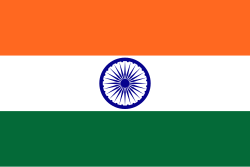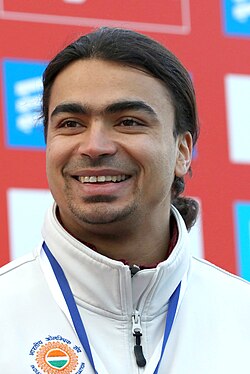| India at the 2018 Winter Olympics | |
|---|---|
 | |
| IOC code | IND |
| NOC | Indian Olympic Association |
| Website | olympic |
| in Pyeongchang, South Korea 9–25 February 2018 | |
| Competitors | 2 (2 men) in 2 sports |
| Flag bearer (opening) | Shiva Keshavan |
| Flag bearer (closing) | Volunteer |
| Medals |
|
| Winter Olympics appearances (overview) | |
| Other related appearances | |
India participated at the 2018 Winter Olympics in Pyeongchang, South Korea, held between 9 and 25 February 2018. The country's participation in Pyeongchang marked its tenth appearance at the Winter Olympics since its debut in 1964. [a] [b]
Contents
- Background
- Competitors
- Cross-country skiing
- Qualification
- Main event
- Luge
- Qualification 2
- Main event 2
- See also
- Notes
- References
The Indian team consisted of alpine skier Jagadish Singh and luger Shiva Keshavan, who was the country's flag-bearer during the opening ceremony. Both of them did not win a medal, and as of these Games, India had not earned a Winter Olympic medal. A volunteer served as the flag-bearer during the closing ceremony.
